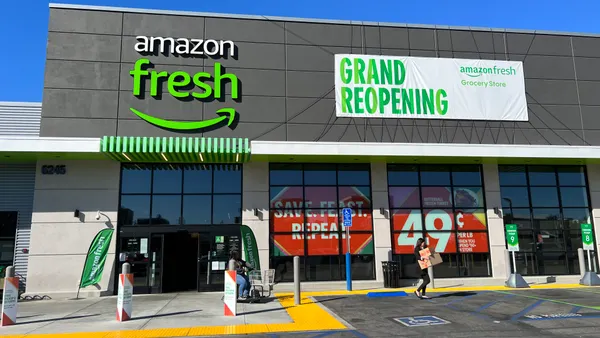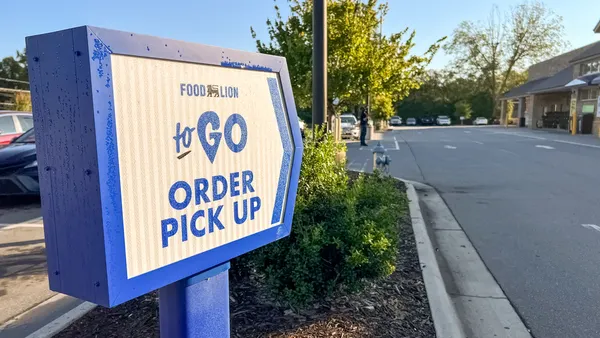Dive Brief:
-
Instacart CEO Apoorva Mehta admitted the company has had a strained relationship with its shoppers and said it needs to do "much, much better" to improve relationships. According to an article in Recode, Mehta — speaking at the Code Commerce conference in New York City — said this is a "core focus" for the company as it moves forward.
-
Instacart settled a lawsuit brought by workers last year for $4.6 million and has faced criticism for its handling of tips and its payment systems.
-
One of the latest steps to improvement includes a new support center in Atlanta, which will eventually have 300 employees. Instacart also updated its checkout process earlier this year to make tipping easier for customers.
Dive Insight:
Almost one year ago, Instacart workers in two markets organized a "no delivery day" that amounted to a strike against the company. The delivery provider told Food Dive the action didn't impact its business, but there was a sense that relations with many workers had become strained. Earlier in the same year, Instacart paid out $4.6 million to former employees for charges on unpaid business expenses and tips.
At one point in the start-up’s history, Instacart removed the tipping option all together. But the company took steps in April to mend the tipping problem by further streamlining the checkout process. Now the app automatically suggests a 5% tip and the service fee has been lowered from 10% to 5%, in order to encourage more consumer tipping.
Mehta says Instacart is taking additional steps to mend relations with its 50,000 shoppers. This includes offering reduced-rate phone plans to its shoppers and inviting them to company town halls.
Now is a critical time to improve relations with its workers, as the Food Marketing Institute predicts that grocery e-commerce sales will hit $100 billion in sales within the next four years. Unemployment is also at historic lows, meaning that Instacart needs to work hard to recruit new shoppers while also holding on to the ones it has. Gig-economy employers like Instacart are having trouble finding and retaining good workers, and some have really stepped up their enticements. DoorDash, an on-demand delivery company that recently moved into the grocery space through a Walmart partnership, is offering its employees health insurance plans.
Instacart's explosive growth only heightens the need for better worker relations. The company secured partnerships with dozens of major grocers and has sealed high-impact partnerships in 2018, including expansions with Kroger and Aldi. Earlier this year, Instacart raised $350 million in new funding and was valued at $4.35 billion
By the end of this year, Instacart expects to be available to more than 80% of the U.S. market. Still, being available and being a customer go-to are two different things. Instacart will have to prove it takes care of its workers if it’s going to compete with delivery giants such as Amazon and Shipt in the grocery segment.












